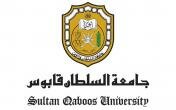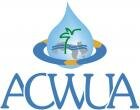Direct Impacts of Alternative Energy Scenarios on Water Demand in the Middle East and North Africa
The Middle East and North Africa (MENA) region stands out globally both for the immensity of its energy resources, and the paucity of its freshwater resources. Most energy extraction and conversion technologies have associated freshwater demand, and in the MENA
region these account for 2 % of the available sustainable supply.We examine how this demand could change over the 21st century, assuming growth in population and economic output, and considering three alternative pathways for energy efficiency, carbon intensity, and energy exports from the region. We find that in the pathway marked by improved efficiency, a transition to renewable energy sources, and declining energy exports, water consumption for energy is twice as high as today’s values by the end of the century. By contrast, in the pathway marked by continued commitment to fossil resource extraction, use, and export, water demand for energy might rise by a factor of five. If the region were to maintain high levels of energy exports, but would substitute the export of fossil fuels by an equivalent amount of electricity derived from sunlight, a freshwater volume comparable to the household needs of up to 195 million people could be saved.













































